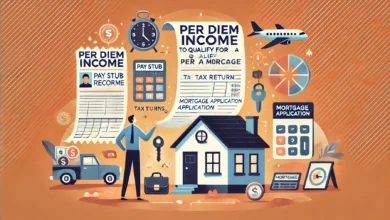What’s the Primary Benefit of Being Prequalified for a Mortgage? A Complete Guide

When you’re looking to buy a home, understanding your finances is crucial, and one of the best ways to do that is through mortgage prequalification. But what’s the primary benefit of being prequalified for a mortgage? In simple terms, it helps you get a clear picture of your financial standing, setting the stage for a smoother home-buying process. This guide will dive deep into the topic, explaining why prequalification is a smart first step and what advantages it offers.
What Does It Mean to Be Prequalified for a Mortgage?
Before diving into the primary benefit, it’s important to understand what mortgage prequalification actually means. Prequalification is the initial step where a lender takes a look at your overall financial situation, including income, assets, and debts. Unlike pre-approval, which involves a detailed look at your creditworthiness, prequalification is more of a quick snapshot that helps you understand how much you might be able to borrow.
It’s an informal assessment—you typically provide your financial information over the phone or online, and the lender gives you an estimate of how much mortgage you might qualify for. This process is non-binding and usually does not involve a hard credit check, making it a low-pressure way to get a handle on your financial standing before diving into the home-buying process.
What’s the Primary Benefit of Being Prequalified for a Mortgage?
So, what’s the primary benefit of being prequalified for a mortgage? The main advantage is that it allows you to understand your borrowing power early on. When you know your budget range, you can focus on properties that fit within your financial limits, avoiding homes that might be too expensive. This helps you make more informed decisions, preventing disappointment or wasted time in the house-hunting process.
By knowing your potential loan amount, you can set realistic expectations and narrow down your home options to those that match your price range. Additionally, this helps you align your expectations with your lender’s, so there are no surprises when it’s time to move forward.
Additional Advantages of Mortgage Prequalification
While the primary benefit is understanding your borrowing power, there are several other key advantages to being prequalified:
- Speed Up the Home-Buying Process: When you have a prequalification in hand, you’re better prepared to make an offer as soon as you find the right property. Sellers may even be more willing to negotiate, knowing you have some financial backing.
- Credibility as a Buyer: Prequalification shows that you’re a serious buyer. Real estate agents and sellers will view you as more credible, which can give you an edge over other potential buyers who haven’t taken this step.
- Budget Planning and Financial Clarity: Prequalification doesn’t just help in setting your home-buying budget—it can also give you insights into your financial health. You’ll be able to identify any areas that need improvement, such as a high debt-to-income ratio, before moving on to the more rigorous pre-approval process.
Prequalification vs. Pre-Approval: What’s the Difference?
While prequalification is the first step, it’s not the same as pre-approval. Pre-approval is a more thorough investigation into your finances, including a credit check, and typically requires more documentation. It gives you a more precise loan amount and interest rate, which can make your offer more attractive to sellers.
However, being prequalified can be seen as a preparatory step—it helps you get your finances in order and understand what loan amount you might qualify for before moving on to pre-approval. Think of prequalification as the foundation of your financial roadmap to homeownership.
How to Get Prequalified for a Mortgage
Getting prequalified is a straightforward process. Here’s what you generally need to do:
- Choose a Lender or Mortgage Broker: Decide whether you want to approach a bank, credit union, or an online lender.
- Provide Financial Information: Be prepared to share details about your income, assets, debt, and employment history. This information helps lenders estimate your loan amount.
- Complete the Prequalification Form: Many lenders offer online forms for prequalification, making it easy to start the process from home. The process is typically quick, and you may get your prequalification estimate within a day or so.
By going through these steps, you’ll gain a clearer understanding of your financial situation and know what price range to look for in a home.
Tips for Maximizing the Benefits of Being Prequalified
To make the most out of your prequalification, consider these tips:
- Use Prequalification as a Financial Planning Tool: Treat prequalification as a way to measure your financial health and plan your home-buying journey.
- Keep Your Information Updated: As your finances change, update your lender with any significant changes in income, assets, or debt to maintain an accurate estimate.
- Know Your Credit Score and Debt-to-Income Ratio: Understanding these factors will help you avoid surprises later on and allow you to negotiate better terms when you’re ready to buy.
Frequently Asked Questions
Q: How long does prequalification last? A: Mortgage prequalification typically lasts around 60 to 90 days. However, your financial situation can change, so it’s wise to keep your information up-to-date.
Q: Does prequalification guarantee a mortgage? A: No, prequalification is just an estimate of your borrowing capacity and does not guarantee loan approval.
Q: Will prequalification affect my credit score? A: Generally, prequalification does not involve a hard credit check, so it won’t affect your credit score. However, pre-approval will require a deeper credit review.
Conclusion
In summary, what’s the primary benefit of being prequalified for a mortgage? It provides a clear understanding of your borrowing power, allowing you to make informed decisions, set realistic home-buying expectations, and prepare for a smooth purchasing process. This initial step is crucial for serious buyers looking to navigate the market with confidence and financial clarity. If you’re thinking about buying a home, start by getting prequalified—it’s a smart way to kick off your journey to homeownership!



